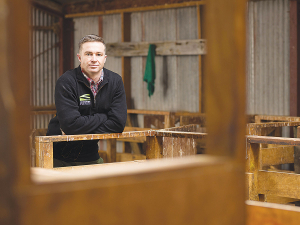Jane Argyle-Reed, partner in Ashburton law firm Argyle Welsh Finnigan, and her team, outline some of the recent changes in legislation that will be of interest to the rural and farming sectors.
In 2017, the Government announced a comprehensive review of the Dairy Industry Restructuring Act 2001 (DIRA) by the Ministry of Primary Industries (MPI).
Earlier last year, the MPI review was completed with recommendations for changes to the DIRA. The resultant Dairy Industry Restructuring Amendment Bill (no 3) is currently with the Select Committee.
MPI believes these changes will increase certainty around milk price calculation, remove unnecessary regulation and protect consumer interests. In order to achieve these objectives, several changes have been proposed, including:
Allowing Fonterra to refuse the supply of milk from farmers in circumstances where milk does not or is not likely to comply with Fonterra’s terms and standards of supply, or in circumstances where milk is supplied from newly-converted dairy farms
Clarifying Fonterra’s terms of supply can relate to various on-farm performance matters, such as environmental, animal welfare, climate change and other sustainability standards and that price can be adjusted accordingly
Limiting Fonterra’s discretion in calculating the base price of milk and clarifying that Fonterra can pay a different farm gate milk price to the base milk price
For Fonterra to be no longer required to supply regulated milk to independent processors with their own supply of 30 million litres or more in a single season, and
Proposing that MPI updates the terms in which Fonterra supplies regulated milk to Hong Kong/Singapore-owned manufacturer Goodman Fielder in order to benefit domestic consumers.
The Select Committee’s report is due on 20 March 2020.
Immigration
Immigration New Zealand has introduced changes that affect some employers and migrant workers. These will be introduced in various stages over the next 18 months to 2021. Changes include:
A new three-stage employer-led visa application process (the employer check, the job check and the worker check)
A new temporary work visa (replacing six temporary work visas)
Classifying jobs as low or high-paid based on whether they are paid above or below the average New Zealand wage
Strengthening the labour market test for low-paid jobs and open access for high-paid jobs in rural regions
Sector agreements for some industries that regularly employ migrant workers, and
Reinstating the ability for lower-paid workers to bring their families to New Zealand.
There are, however, changes for Talent Accredited Employers; these took effect from 7 October 2019. They include:
An increase the salary employers must offer their employees before they can apply for a Talent (Accredited Employer) Work Visa (from $55,000 to $79,560), and
A reduction in the period of accreditation of employers to 24 months.
Some visa requirements and processes will remain the same. People holding visas based on lower-skilled work must still leave New Zealand for a one-year period after they have been working for three years, and Immigration New Zealand must still be satisfied that there are no New Zealanders available for that job before approving a visa.
Animal welfare regulations
There have been several changes in the Animal Welfare (Care and Procedures) Regulations 2018. These were mostly minor changes to existing regulations, although some entirely new regulations have also been introduced.
This article was first published in the Summer 2019 edition of Rural eSpeaking, the farm-focused e-newsletter of NZ LAW member firms. Argyle Welsh Finnigan is a member of NZ LAW.



















